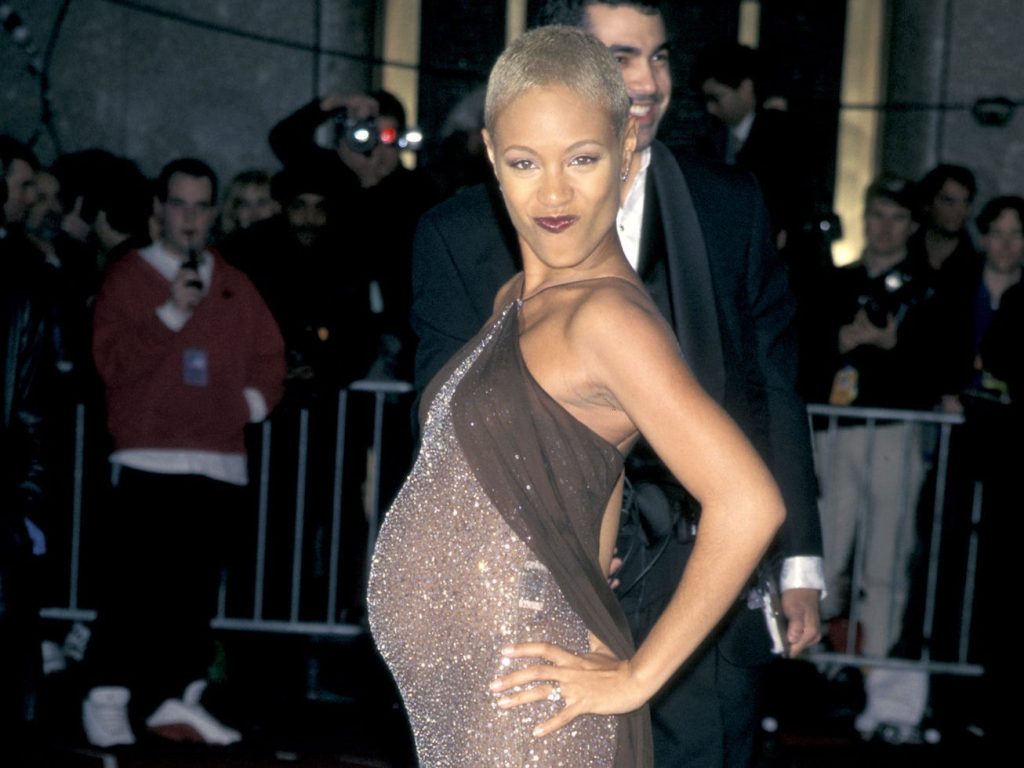- Jada Pinkett Smith has been open about the emotional highs and lows of living with alopecia.
- Alopecia causes the immune system to attack hair follicles
- Pinkett Smith said losing her hair was a "scary experience," but over time has become comfortable with her diagnosis.
Jada Pinkett Smith's hair loss is at the center of conversation following the 2022 Academy Award ceremony, where her husband Will Smith slapped Chris Rock for joking about her appearance.
Pinkett Smith has an autoimmune condition called alopecia, which causes the immune system to attack hair follicles.
The condition, which impacts men and women equally, does not have a cure, but treatments can encourage hair regrowth.
There is a growing field of research on the psychological distress people with alopecia experience— something Pinkett Smith has been vulnerable about with her fans, sharing not only the emotional lows of having the disease, but also ways she has accepted her hair loss.
Pinkett Smith first opened up about alopecia with her daughter and mother on an early Red Table Talk episode
Pinkett Smith opened up about her condition on a May 2018 episode of Red Table Talk, her Facebook talk show, after receiving questions about why she had been wearing turbans. She did not confirm when she received her diagnosis, and the 2018 discussion was the first time she mentioned alopecia.
She said first started losing her hair in the shower was "terrifying" and a "really scary experience." Pinkett Smith said she switched to a short, asymmetrical haircut in early 2018 in part to manage her hair loss.
"It was terrifying when it first started. You know, I was in the shower one day, and then just handfuls of hair just in my hands. I was like, 'Oh my God, am I going bald?'," Pinkett Smith said.
Pinkett Smith said taking care of her hair was a "ritual" in her life as a Black woman
Pinkett Smith added that her hair had been a large part of her life, and taking care of her hair had been "a beautiful ritual." She had various bold haircuts during her acting career, including shaving the sides of her head in 2013 and rocking a buzz cut at the 1998 Grammy awards.

In a November 2018 Red Table Talk episode, Pinkett Smith said she had been teased by white women in regards to her hair and how she looked. "I do have my own biases, especially with blonde women," Pinkett Smith told her mom and daughter on the episode. "Blonde hair on white women just triggers me."
Hair is often politicized for Black people, especially Black women, in the US. Most states do not have laws protecting against hair-based discrimination, and many public schools punish children with braids or locs for violating dress codes. The House of Representatives only this month passed the CROWN Act, a bill that would ban race-based hair discrimination at work.
"How I present myself is intentional, and it's political...It's political because I'm a Black bald woman," Representative Ayanna Pressley, who also has alopecia, told Elle in February. "How I present challenges conventional norms and standards for what is beautiful, for what is professional, for what is appropriate."
After going public with her diagnosis, Pinkett Smith began receiving steroid injections to mitigate the hair loss
Corticosteroids injections in bare patches of skin are the most common treatment for the disease, according to the National Alopecia Areata Foundation. The new growth from steroid injections can appear within four weeks, but the treatment does not prevent new hair loss from developing.
"I just want to say a thank you to everyone for all the outreach, from all the doctors and all the holistic practitioners, who have been reaching out to me for this head of mine, I appreciate it so much," Pinkett Smith said on Instagram in 2018, according to People. "And I'm taking into a lot of consideration all the recommendations that are coming my way." She hasn't discussed steroid use since then; it's unclear if the medication is still part of her regimen.
Pinkett Smith recently shared a video of a new bald line on her head, and say she plans to decorate it with rhinestones
During her initial reveal in May 2018, Pinkett Smith said what helped her come to terms with her hair loss was looking to a "higher power" for answers. "People are out here who have cancer, people who have sick children, I watch the higher power take things everyday," she said. "By golly, if the higher power wants to take your hair, that's it?"
These days, Pinkett Smith talks openly about her hair loss, confidently sharing details with a caring and joking tone. For example, she posted an Instagram video in December 2021 showing a bald line patch on her head, explaining that it was caused by alopecia and not brain surgery.
She laughed throughout the video and joked about placing rhinestones on her scalp to make "a little crown."
"Me and this alopecia are going to be friends … period!" she said in the Instagram caption.
Last week Pinkett Smith shared a heartfelt video about having to fight against European hair standards for decades. Now she says "I don't give 2 craps what people feel about this bald head of mine."
In a video celebrating the House's passage of the CROWN Act, Pinkett Smith said she, as a Black woman, felt pressured to have her hair look "as European as possible."
She said though she wanted her hair curly, she had to wear it in ways that "weren't natural" to her. In the Instagram video, she compared photos of herself with straight hair versus with curly hair.
"I don't give two craps about what people feel about this bald head of mine of mine because guess what, I love it," Pinkett Smith said on Instagram.

